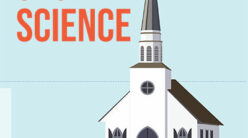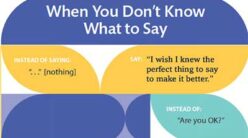 Really stop to think about your diet. How many servings of fruits and vegetables did you honestly have yesterday?
Really stop to think about your diet. How many servings of fruits and vegetables did you honestly have yesterday?
In response to that question, many people sigh and think, I need more veggies. It’s just too inconvenient to eat healthfully!
Research agrees with that inner voice telling you to eat more veggies. In fact, for most people diet and lifestyle impact the risk of cancer more than genetics. The Adventist Health Study (AHS), conducted by a group of researchers at Loma Linda University, explores just how much diet and lifestyle affect health. The study is unique because it compares and contrasts diets ranging from meat eaters to vegans.
When it comes to cancer prevention, AHS findings reveal which foods to eat—and which to avoid. So grab a pen, pull out a highlighter, or dog-ear this page. It’s time to get smart about cancer.
Foods to Eat
Nix the junk food you may be tempted to nibble on in the office. Instead, opt for a handful of nuts. Not only does eating nuts regularly reduce the risk of heart attacks by up to 50 percent—it may also have cancer-preventing properties.
Eat more fresh fruit. According to AHS and other research, whole fruit (not juice) is shown to reduce the risk of multiple types of cancer, including lung and stomach cancer.
Add dried fruit, such as dates and raisins, to a variety of nuts for a healthy trail mix. Or sprinkle dried cranberries in your salad at lunch. An easy and practical snack, dried fruit is associated with decreased risk of prostate cancer.
At dinnertime, instead of cooking white rice or pasta, go for brown rice and legumes, which are associated with reduced risks of pancreatic and colon cancer.
Swap out cow’s milk for soymilk in your breakfast cereal. And consider having another glass at dinner. Drinking soymilk more than once daily may reduce prostate cancer risk by at least 50 percent. It may also help with breast cancer prevention.
Having salad? Pile on the tomatoes. Men who eat more tomatoes may reduce their risk of prostate cancer by up to 40 percent. In women, eating tomatoes more than five times a week may also decrease the risk of ovarian cancer.
Foods to Avoid
With an overwhelming amount of preventive advice, Gary Fraser, M.D., Ph.D., principal investigator for AHS, says it all boils down to one crucial choice: when you become a vegetarian, your chances of getting cancer plummet. Vegetarians enjoy a 25-40 percent reduction in risk.
“Lean toward a plant-based diet rich in vegetables and whole grains,” says Dr. Fraser. “Also, stay moderately active and avoid smoking and alcohol.”
Research shows that frequent consumption of beef increases the risk of bladder cancer. Red meat also increases the risk of colon cancer by 50 percent or more.
Cutting out meat may have another added benefit: weight loss. And as you decrease the pounds, you decrease your risk of cancer. “Being overweight has only recently been recognized as an important risk factor for many cancers,” says Dr. Fraser. “This seems to act in part by altering levels of estrogens and insulin, which can promote cancers.”
Dietary changes can make all the difference when it comes to well-being. The benefits of eating healthfully far outweigh the inconvenience of changing a habit or the discomfort of denying a food craving.
Kelly Phipps is a senior communication major at Union College in Lincoln, Nebraska. She wrote this article during her business internship at Loma Linda University Adventist Health Sciences Center, in Loma Linda, California.






